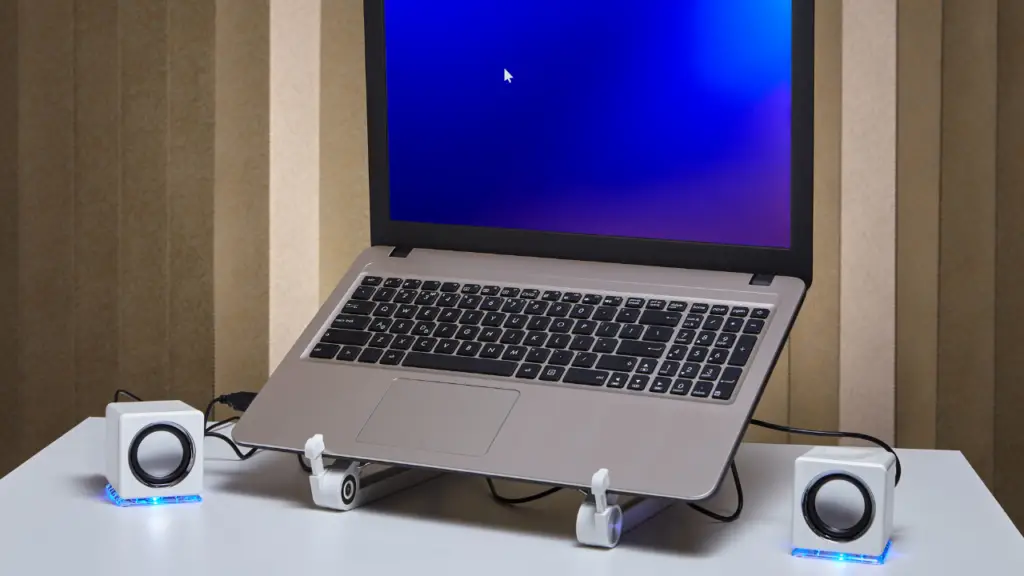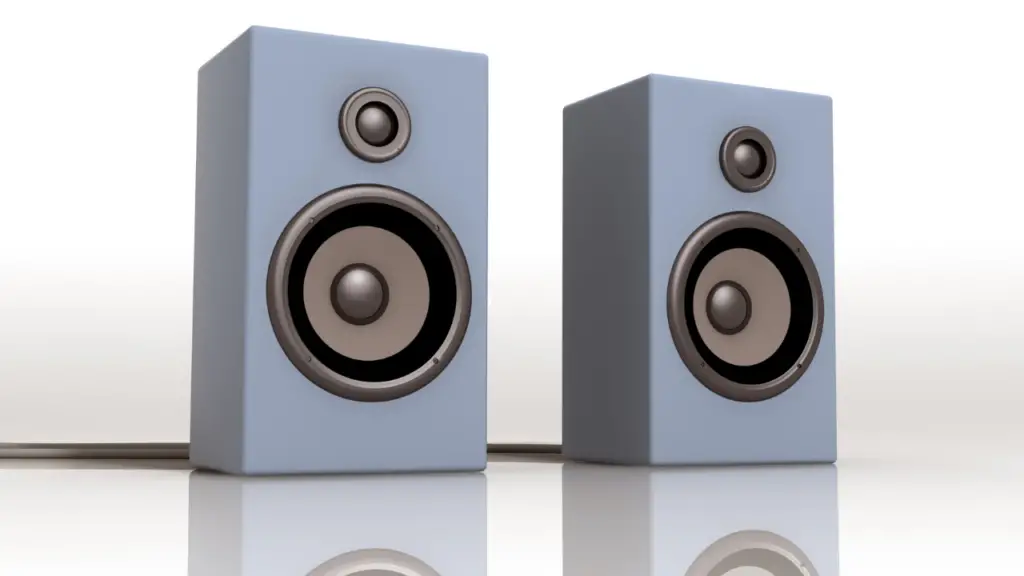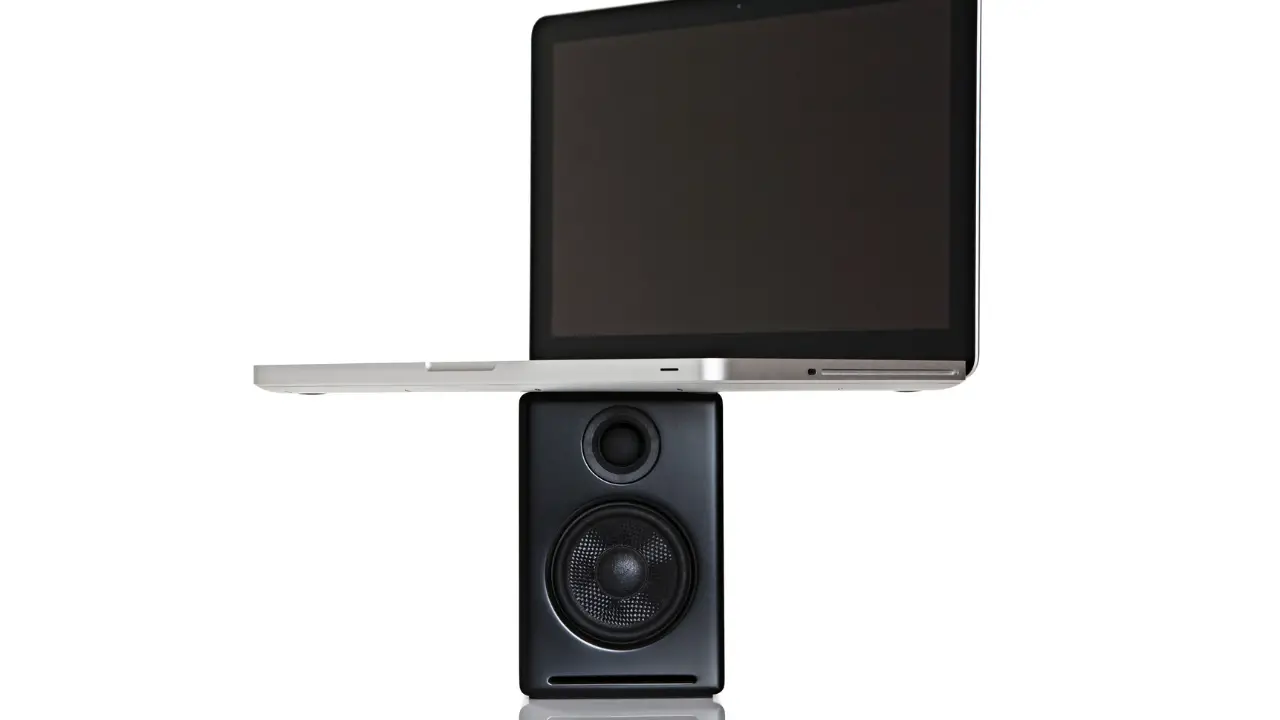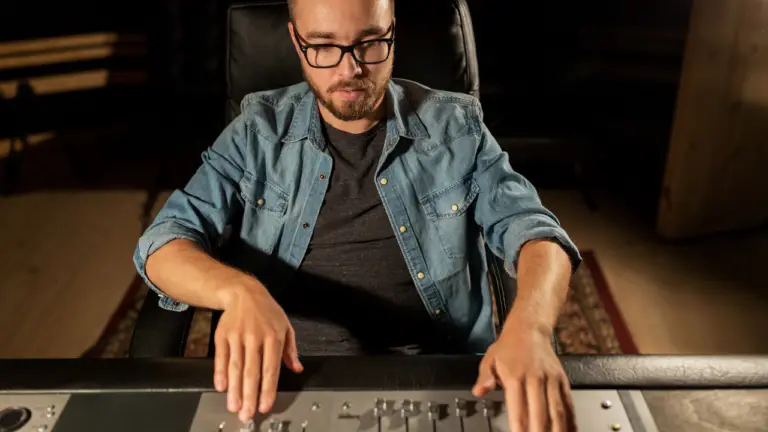Can You Mix Music Using Laptop Speakers?
If you’re a bedroom producer, or someone who is on a low income, you may not have an endless budget to splash out on the latest sound technology. Dedicated speakers can cost a lot of money – money that not everyone has. However, you have a laptop, you have a DAW, and you want to make music.
So now the question arises: can I mix my tracks using my laptop speakers? Are they good enough, or is it absolutely necessary to buy dedicated speakers with a high frequency range?
I’ve been in this exact situation, and I’m going to tell you what worked for me.
Before we start, it’s also important to note that high-quality speakers are vital during the ‘Sound Design’ process, too. Sometimes, it’s hard to tell the difference between sound design and mixing. I’ve written an entire article on the differences between these two concepts, and how to separate them for better organization during music production.
Can I Just Use My Laptop’s Speakers To Mix?
You can absolutely mix your tracks (or even other people’s tracks) on laptop speakers, providing they have a fairly decent frequency range.
In fact, you may be surprised to know that I mix all my tracks on my laptop speakers!
When I started producing music, I didn’t have the money to buy expensive, high-quality speakers, so I had to make do with what was available. As time went on, I got so used to the sound of my laptop speakers, that now I cannot properly mix with anything else!
Of course, I always check my mix on other sound systems, but the main process of mixing is performed completely on my laptop speakers.
However, using laptop speakers to mix instead of high-quality dedicated speakers obviously has its disadvantages. There are a few caveats you need to be aware of if you’re going to do this, and a few problems you may run into.

The Main Problem With Using Laptop Speakers to Mix
The main issue with using your laptop speakers to mix a track, as opposed to using dedicated speakers or headphones, is the lack of frequency range.
Frequency range (or frequency response) is a measurement of the range of frequencies that a sound system can consistently and satisfactorily reproduce. In simpler terms, it means asking this question: how high or low can your speakers go?
Speakers and headphones created for music production usually have much larger frequency ranges, as they’re designed with the idea in mind that a producer needs to hear the entire sound spectrum. You don’t want to be making music when you can’t even hear half the sounds, because your speakers aren’t capable of producing them!
This is the issue you’ll run into when using laptop speakers to mix your tracks. Most laptops aren’t designed specifically for music production. They’re usually designed to be able to handle a wide range of tasks at a decently satisfactory level. This means the speakers on your laptop (even if it’s a high-end laptop) probably aren’t made to have a high frequency range, and therefore, won’t be able to produce the highest and lowest possible sounds.
This, of course, is a real issue if you’re trying to mix music just by using your laptop speakers. How can you mix sounds together when you can’t hear them properly?
What is the Frequency Range of Laptop Speakers?
The range that a human can hear is from 20Hz at the lowest, to 20kHz at the highest. The best speakers on the market can produce this entire range, and sometimes even more. Your laptop probably can’t.
I’ve done some research, and it seems the average laptop speaker, in modern times, can produce low-end sounds down to around 100Hz. Below this is where you start to hear some anomalies. (Of course, this is just an average, and your laptop speakers may be better or worse).
The high-end seems to be a bit better. I use Macbook speakers, and I can comfortably hear the high, crispy, airy frequencies in my tracks. Laptop speakers tend to be better quality in the higher areas – they’re designed to be better here, as this is where the human ear is most sensitive and hears the most.
The question here isn’t really ‘what frequency range can my laptop speakers produce?’
But rather:
‘What frequency range do I NEED to hear to mix tracks’?

Do You Really Need to Hear The Sub-Bass?
It’s often said that, in music, the sub-bass is not ‘heard’, but rather, ‘felt’. The sub-bass consists of all the frequencies below around 60Hz. As mentioned before, the human ear can technically hear sounds down to 20Hz at the absolute lowest, but this doesn’t necessarily mean what it seems. After a certain point, you don’t really ‘hear’ bass frequencies, but rather ‘feel’ them.
If you’ve ever been in a car with a subwoofer, and you feel the vibration of the bass through the air, you know exactly what I mean.
In fact, a lot of popular tracks you hear in the charts don’t even have ‘sub-bass’ at all. Most pop songs don’t have it. Most rock n’ roll songs don’t have it. And all your favorite tunes from the 70s played by a live band? They certainly don’t have it.
Yes, it’s true that most laptop speakers cannot reliably produce sub-bass frequencies. But the real question is, do you even need it to? Do you really need to hear the sub-bass, when the vast majority of songs don’t even have sub frequencies?
Well, ultimately, it depends on the type of music you want to create (or mix).
Is It Worth Buying Better Speakers?
The question of whether it’s worth buying dedicated speakers with a high frequency range, or just sticking with your laptop speakers, comes down to the type of music you mix the most. Every mixer is a unique individual, with a different set of ears, and a different need for equipment. You may save yourself some money by using what you already have, or you may need to splash out on a necessary upgrade.
Do you mix music that doesn’t have a lot (if any) sub frequencies? Then your laptop speakers will probably do just fine.
Do you mix music that is very bass-heavy and has a lot of low-end frequencies (such as dubstep or bass house)? Then you’ll probably need to buy high-quality speakers, or at least, mixing headphones.
Personally, the music I make and mix tends not to have many sub frequencies, so I am totally fine with using my built-in laptop speakers to mix my tracks. You might be different, though. I can only make the above recommendations based on my experience and research.

Your Mix Doesn’t Have To Be ‘Perfect’ (There’s No Such Thing)
Finally, I want to mention something that I think is important for those wondering ‘will my mix be terrible if I use my laptop’s speakers?’
Your mix is NOT the most important thing. Your song is.
Don’t get me wrong, the mix is important. If your snare is ridiculously louder than the rest of your track, it will sound weird and people will notice. That’s just common sense.
But as long as your mix is ‘decent’ at worst, most people won’t ever notice. Most people don’t even understand the concept of a ‘mix’. When you hear people complaining about how badly mixed a song is, it’s usually fellow producers or audio engineers on forums, who analyze this stuff for a living, talking about how a snare is 1 decibel too loud.
The point is, 99% of people who ever listen to your music will not know, understand, or care that your snare is 1 decibel too loud. In fact, what even is ‘too loud’? Who decides that?
99% of people who ever listen to your music will not know, understand, or care that your mix is slightly imperfect.
As I said before, mixing is important, but it shouldn’t be your absolute priority. Your priority should be making great songs.
There are countless examples of songs that modern -day engineers would call ‘badly mixed’, but are actually beloved by millions of people.
I can guarantee that if Bohemian Rhapsody came out today, people would criticise it as ‘badly mixed’. And compared to modern mixes, it is. It was mixed on the limited technology they had back then. But nobody cares. It’s a great song, and that’s why it’s been so loved for decades.
So if you’re worried about your laptop speakers not being able to produce the extra 10Hz that a dedicated speaker can, there’s bigger things you should probably care about more.
I hope this article gave you enough information to decide whether you should stick with your laptop’s speakers, or spend your cash on higher quality dedicated speakers. All I can say is that I’ve been mixing on laptop speakers since I started producing music, and it has never caused any real serious problems for me!



